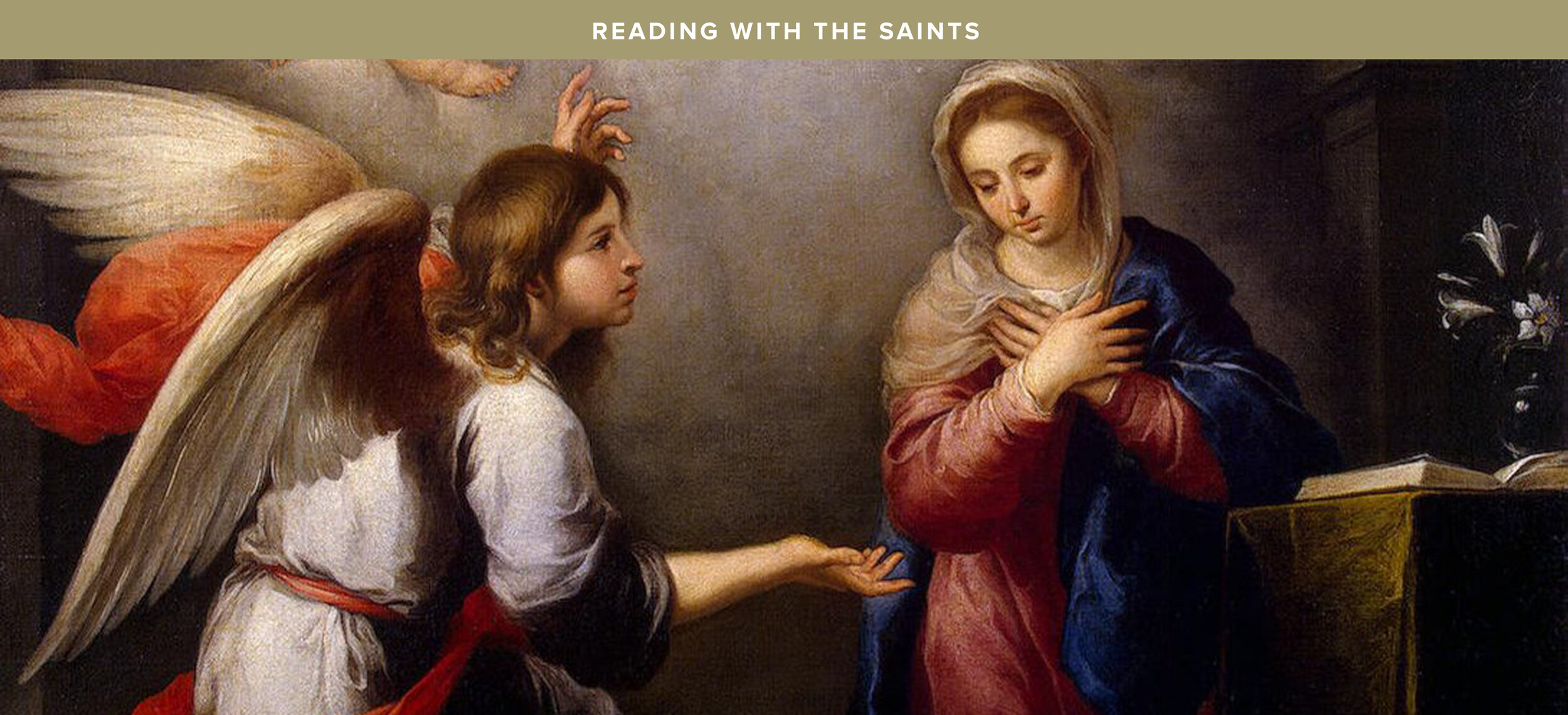The Life of St. Benedict
This selection is taken from chapters 33-34 of The Life of Saint Benedict by Gregory the Great. St. Benedict (d. 547) is considered the founder of Western monasticism, and many forms of religious life find their root in The Rule of St. Benedict. In this beloved story from near the end of his life, Benedict’s sister Scholastica shows him (and us) that charity is the end of the rule, and sometimes even trumps the letter of the rule.
GREGORY:
What man is there, Peter, in this world, that is has found greater favor with God than St. Paul, who yet three times desired our Lord to be delivered from the prick of the flesh, and obtained not his petition (cf. 2 Cor. 12:8)? Concerning such a point I must also tell you, about one thing which the venerable father Benedict would have done, and yet he could not.
For his sister called Scholastica, dedicated from her infancy to our Lord, used once a year to come and visit her brother. The man of God went to her at a place that belonged to the Abbey not far from the gate, and entertained her there. And when she came there at her accustomed time, her venerable brother with his monks went to meet her, where they spent the whole day in the praises of God and spiritual talk: and when it was almost night they supped together, and they were still sitting at the table, talking of devout matters, and darkness came on, the holy Nun his sister entreated him to stay there all night, that they might spend it in discoursing of the joys of heaven. But by no persuasion would Benedict agree to that, saying that he might not by any means stay all night out of his Abbey.
At that time, the sky was so clear that no cloud was to be seen. The Nun, receiving this denial of her brother, joining her hands together, laid them upon the table: and so, bowing down her head upon them, she made her prayers to almighty God: and lifting her head from the table, there fell suddenly such a tempest of lightning and thundering, and such abundance of rain, that neither venerable Benedict, nor his monks that were with him, could put their head out of door: for the holy Nun, resting her head upon her hands, poured forth such a flood of tears upon the table, that she drew the clear air to a watery sky, so that after the end of her devotions, that storm of rain followed: and her prayer and the rain did so meet together, that as she lifted up her head from the table, the thunder began, so that in one and the very same instant, she lifted up her head and brought down the rain. The man of God, seeing that he count not, because such thunder and lightning and great abundance of rain, return back to his Abbey, began to be heavy and to complain of his sister, saying: "God forgive you, what have you done?" to whom she answered: "I desired you to stay, and you would not hear me, I have desired our good Lord, and he has granted my petition: therefore if you can now depart, in God's name return to your monastery, and leave me here alone."
But the good father, being not able to go forth, stayed there against his will, where willingly before he would not stay. And so by that means they watched all night, and with spiritual and heavenly talk did mutually comfort one another: and therefore by this we see, as I said before, that he would have had that thing, which yet he could not: for if we respect the venerable man's mind, no question but he would have had the same fair weather to have continued as it was, when he set forth, but he found that a miracle did prevent his desire, which, by the power of almighty God, a woman's prayers had brought about. And it is not an incredible thing, that a woman who had not seen her brother for a long time, could do more at that time than Benedict could, according to the saying of St. John, “God is love” (1 John 4:8). Therefore, rightly she did more who loved more.
PETER:
I confess that I am wonderfully pleased with that which you tell me.
GREGORY:
The next day the venerable woman returned to her convent, and the man of God to his Abbey: who three days after, standing in his cell, and lifting up his eyes to heaven, beheld the soul of his sister (which was departed from her body), in the likeness of a dove to ascend into heaven. He rejoiced much to see her great glory, with hymns and lauds gave thanks to almighty God, and did impart the news of this her death to his monks, whom also he sent presently to bring her corpse to his Abbey, to have it buried in that grave which he had provided for himself. Therefore it happened that as their souls were always one in God while they lived, so their bodies continued together after their death.







